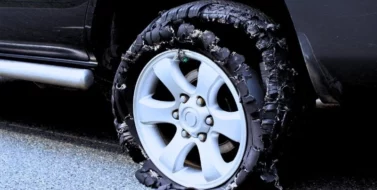If you are considering loaning your vehicle to a friend or family member, you may wish to consider, “What happens if someone else is driving my car and gets in an accident?” If another person gets into an accident while driving your car, you may be liable for damages. Your potential for liability depends on various factors. The courts will consider how the driver came into possession of your vehicle before the collision occurred. They will also look at whether you knew about, or should have known about, whether the driver was intoxicated, had a history of reckless driving, or was an inexperienced or unlicensed driver. For example, you will likely face more legal exposure if the driver of your vehicle was your employee that was driving your vehicle with your permission as opposed to a friend or family member that was driving your vehicle without your permission.

Table of Contents
Who Is Liable if Someone Else Wrecks Your Car?
In motor vehicle accidents, the fault for the crash generally determines liability for injuries. When a borrowed car is involved in a crash, however, the owner or the vehicle may also be held liable for damages. If another person wrecks your car, your liability as the owner depends on various factors. The most important, however, is a fault.
Determining fault in a car accident depends on proving negligence in court. A negligence claim has four elements. (1) A Plaintiff must prove the other driver owed the victim a duty of care. (2) A Plaintiff must also prove the other driver breached his or her duty of care. (3) If a Plaintiff suffered any injuries, the victim must prove the injuries were caused by the defendant breaching his or her duty of care. (4) Finally, Plaintiffs must also prove they suffered damages.
If you allowed a family member or a friend to borrow your car, and the facts indicate that person caused the collision, the borrower is liable for damages. You may also be liable for the victim’s losses, however, under a legal theory known as negligent entrustment. Similarly, if you allowed an employee to drive your vehicle, you may also be liable under the legal theories of respondeat superior, negligent hiring, negligent retention, negligent supervision, and also negligent entrustment.
What Is Negligent Entrustment?
If you allowed another person to drive your vehicle and that person caused a collision, the driver can be sued under a theory of negligence. Under certain circumstances, like if the driver was known to have been intoxicated, you can also be sued for negligently entrusting your vehicle to the negligent driver. While it may seem unfair that you face legal exposure due to another person’s negligence, the Illinois State Supreme Court has made it clear that you as the owner are liable if you knew or should have known that the person borrowing your car posed an unreasonable risk of danger to other drivers.
The claim of negligent entrustment has two elements. (1) A plaintiff must prove that you had “superior control” over the vehicle. This means Plaintiff must prove you had the authority to allow the driver to borrow your car. A Plaintiff must prove you gave the driver your express or implied permission to drive the vehicle. (2) A Plaintiff must also prove you knew or should have known that the person who borrowed your car posed a risk of danger to other drivers. Specifically, a Plaintiff must prove you had actual knowledge of the risk the driver posed. You may face legal liability if you permitted a person with a history of drunk driving, a person who was underage, or someone that lacked a valid license to drive your vehicle.
Negligent entrust claims arise in a variety of situations. People often allow their spouses, children, and other close family members that reside in their households to drive their vehicles. Parents should be particularly mindful. This is because a parent can be liable under a theory of negligent entrustment especially if the child was performing a service or running an errand the parent requested.
What Is a Respondeat Superior Claim?
Respondeat superior is a legal claim that allows a victim to hold an employer liable for the employee’s negligence. This is a form of vicarious liability. This claim can be asserted if your employee was driving your vehicle. In order to hold you liable, a Plaintiff has to prove the driver, i.e., your employee, was driving your vehicle while in the scope of his or her employment. Scope of employment does not have a precise definition. Instead, courts look at whether the activity was the kind of activity the employee was authorized to perform. For example, a Plaintiff has a stronger respondeat superior claim if the driver was driving your vehicle if they were delivering a package on your behalf or traveling to a work site on your behalf. Courts also look at whether the accident occurred while the driver was driving during work hours. Finally, courts also look at whether the driver was furthering your interest. A Plaintiff has a weaker respondeat superior claim of the driver of your vehicle was involved in a collision while performing a personal errand outside of normal business hours, or if the driver was driving during a scheduled break period. Even if a Plaintiff does not have a strong respondeat superior claim, they can still hold you liable via a negligent entrustment claim because you allowed the employee to drive your vehicle.
Negligent Hiring, Supervision, and/or Retention
You could also be held to be vicariously liable via claims of negligent hiring, supervision, and/or retention. If you hire a friend or family member, and you know that person has a bad driving record, you could also be liable under a claim of negligent hiring if the person is involved in a collision. For an employer to be liable for negligent hiring, a Plaintiff must prove three elements. (1) A Plaintiff must prove you knew or should have known that that driver was unfit. (2) A Plaintiff must also prove you knew the driver was unfit when you hired the driver. (3) Finally, a Plaintiff must prove the driver’s unfitness caused his or her injury. A Plaintiff must not only prove the driver of your car was unfit, but also that it was foreseeable that the driver’s unfitness would cause injuries.
If you hire a driver and later learn the driver has poor driving habits, you could be liable if you fail to supervise the driver. If you fail to fire the driver, you could be held liable under a claim of negligent retention. The elements for a claim of negligent supervision are the same as the claim of negligent hiring. The difference with negligent retention is that you learned the driver was unfit after hiring him or her.
Whose Insurance Covers the Accident?
Automobile insurance generally follows vehicles, not people. If another person borrows your car and is subsequently involved in a collision, your insurance typically provides coverage if any claims are made against the driver of your vehicle. Issues regarding insurance coverage are relatively simple in cases where the driver resides in the same household, such as with family members. This is because parents usually place their children and/or their spouses on their insurance policies. If a claim is made due to the driver’s negligence, there is only one insurance policy to provide coverage. Things can become complicated when a car is borrowed by a friend or a person who is not a member of the owner’s household.
If you allow your friend to borrow your car and the person causes a collision, your insurance provides primary coverage. This means if the driver of the other vehicle is injured, your insurance policy will pay his or her damages. Things can become complicated if the other driver’s damages exceed the limits of your insurance policy. If the driver of your vehicle had his or her own insurance, this policy may provide excess coverage. After your insurance policy is exhausted, the insurance policy of the driver of your vehicle may provide additional insurance coverage. Finally, if it is determined that the driver of the other vehicle caused the collision, his or her insurance policy will cover any personal injury claims.
Insurance Coverage Exceptions
There are certain limited situations in which your insurance policy will not provide coverage if another person is driving your vehicle and is subsequently involved in a collision. Common situations are those involving non-permissive use. This means a person is driving your car without your permission. For example, if a thief steals your car and causes a collision with another vehicle, your insurance policy will not provide coverage if a claim is made by the driver of the vehicle.
Non-permissive use may be difficult to prove if a friend or family member took your vehicle without your permission. If you are able to prove that the person took the vehicle without your permission, your friend or family member’s insurance policy (if any) will provide coverage. If your friend or family member lacks insurance and takes your car without your permission, your insurance company will generally provide coverage. An auto accident attorney can help car owners determine which insurance company should pay for damages.
Another situation in which your insurance policy does not provide coverage is when an excluded driver causes a collision. An excluded driver is a person you have listed on the insurance policy as not having permission to drive the vehicle. If you allow an excluded driver to drive your vehicle, and that person causes a collision, your insurance policy will not provide coverage.
What Should You Do After Someone Else Crashes Your Car?
There are many steps to follow after an accident. Drivers and passengers can suffer a variety of personal injuries in car accidents. You should find out if anyone requires medical attention. You should also contact the police. When a police officer responds to a car accident, he or she will prepare a crash report. The crash report will contain important information such as a description of the collision, the location, and the information of the drivers. You should attempt to obtain a copy of the crash report.
You should document the scene of the collision. Photograph the vehicles and the damage they suffered. Also, photograph the scene of the collision and attempt to capture the conditions of the roadway along with any visible debris. Along with documenting the scene, you should obtain the name and contact information of the driver of the other vehicle and the other driver’s insurance information. Further, if any person witnessed the collision, you should obtain the witnesses’ names and contact information.
After the crash, you will have to cooperate with your insurance carrier’s investigation. Your insurance carrier will want copies of any photos along with the police report. Further, your insurance company may request that you, and the driver of your vehicle, provide recorded statements regarding the collision. Before providing a recorded statement to the insurer, it is wise to consult with your car accident lawyer. This helps ensure that your rights are protected, as your attorney knows how to prove you are not at fault in a car accident.
Finally, if your vehicle was taken without your permission, i.e., stolen, you should gather any and all evidence to support this claim. If you called the police to report the vehicle as stolen, you should provide the insurance carrier with the report number. If you had any electronic communications with the driver before or after the collision, such as text or email, you should retain copies of the communications.
What Should You Do Before Allowing a Friend or Family Member to Borrow Your Car
Many of the legal issues that can occur when a person borrows your car and is subsequently involved in a collision can be avoided. Before allowing a friend or family member to borrow your car, you should find out if the person has insurance. You should ask about why the person wants to borrow the car and where the person intends to drive your vehicle. Be sure to look for signs of alcohol or drug use.
Before giving your friend or family member permission to drive your vehicle, you also should ask that person about his or her driving record. Additionally, you should ask your friend or family member if the person has a valid license. If you decide to give your friend or family member permission to drive your vehicle, you should inform that person that you could be legally liable if a collision occurs.






